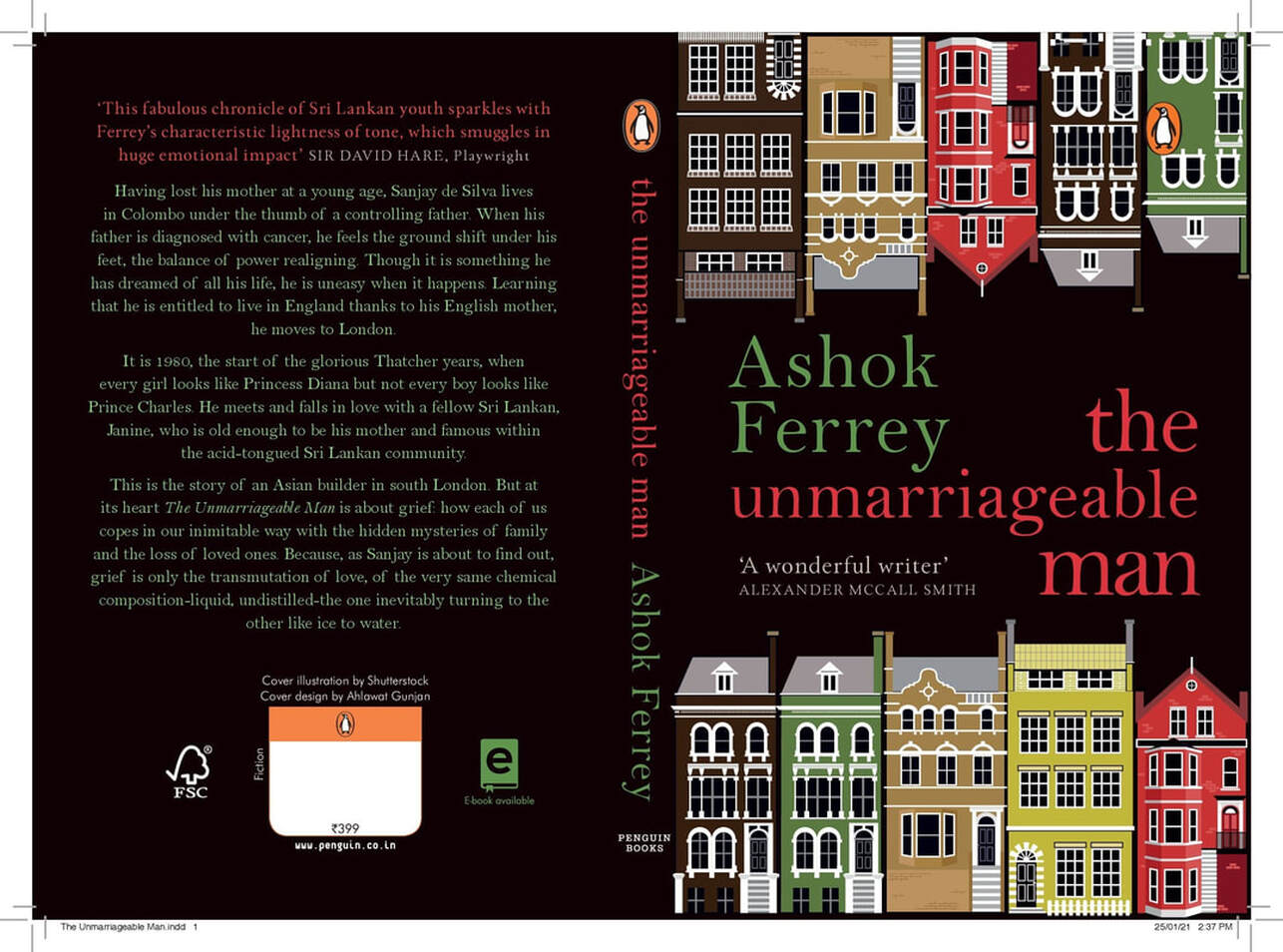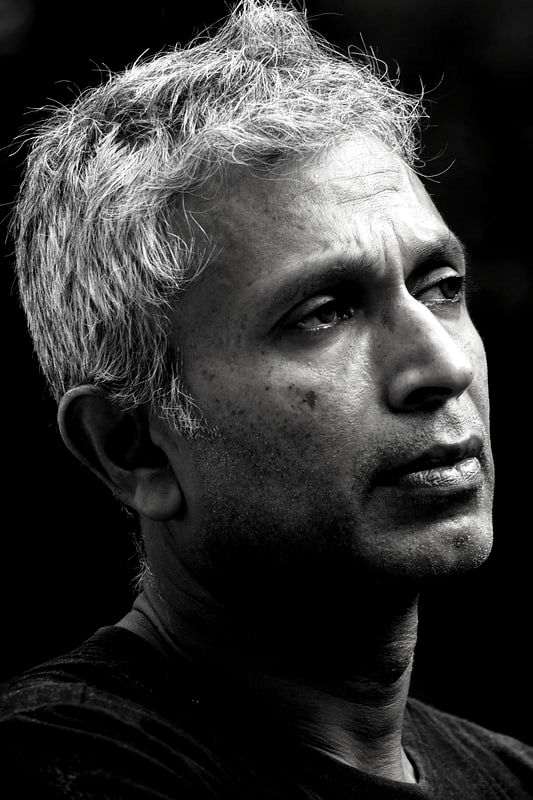
It gives me great pleasure to welcome Sri Lanka's best-selling author, Ashok Ferrey onto the website today. Having studied pure mathematics at Oxford, Ashok became a builder in London before turning to writing. The Unmarriageable Man, his autobiographical account of his life and times as a builder in London has been widely acclaimed. Alexander McCall Smith refers to Ferrey as 'a wonderful writer.' And Sir David Hare has described the book in the following terms: 'This fabulous chronicle of Sri Lankan youth sparkles with Ferrey's characteristic lightness of tone, which smuggles in huge emotional impact.'
Alex: Tell me a bit about yourself, Ashok.
Ashok: I had kind of a weird upbringing. Born in Sri Lanka, left for Mogadishu (Somalia) at the age of 8, shunted off to school in Nairobi for 3 months, then back to Somalia; finally, at the ripe old age of 11, packed off to boarding school at a Benedictine Monastery (Worth Abbey) in the UK. Did I get the feeling my parents were trying to off-load me? Not really. I guess they were of their time – ruthlessly old-fashioned! – believing that a child had no option but to go where the education was, not where his parents were.
I started writing at the age of 42, which only goes to show that if this idiot can do it, any idiot can. Before that, Pure Maths at Oxford, followed by 8 years as a builder in Brixton (the subject of my latest book, The Unmarriageable Man). Home to Sri Lanka at 30, where I continue to design houses (my latest is the Cricket Club Café in Colombo). I also lecture on history of architecture at the City School of Architecture. By day I’m a personal trainer. I’m ashamed to admit that I make more money as a trainer than I do as a writer!
Alex: Tell me a bit about yourself, Ashok.
Ashok: I had kind of a weird upbringing. Born in Sri Lanka, left for Mogadishu (Somalia) at the age of 8, shunted off to school in Nairobi for 3 months, then back to Somalia; finally, at the ripe old age of 11, packed off to boarding school at a Benedictine Monastery (Worth Abbey) in the UK. Did I get the feeling my parents were trying to off-load me? Not really. I guess they were of their time – ruthlessly old-fashioned! – believing that a child had no option but to go where the education was, not where his parents were.
I started writing at the age of 42, which only goes to show that if this idiot can do it, any idiot can. Before that, Pure Maths at Oxford, followed by 8 years as a builder in Brixton (the subject of my latest book, The Unmarriageable Man). Home to Sri Lanka at 30, where I continue to design houses (my latest is the Cricket Club Café in Colombo). I also lecture on history of architecture at the City School of Architecture. By day I’m a personal trainer. I’m ashamed to admit that I make more money as a trainer than I do as a writer!
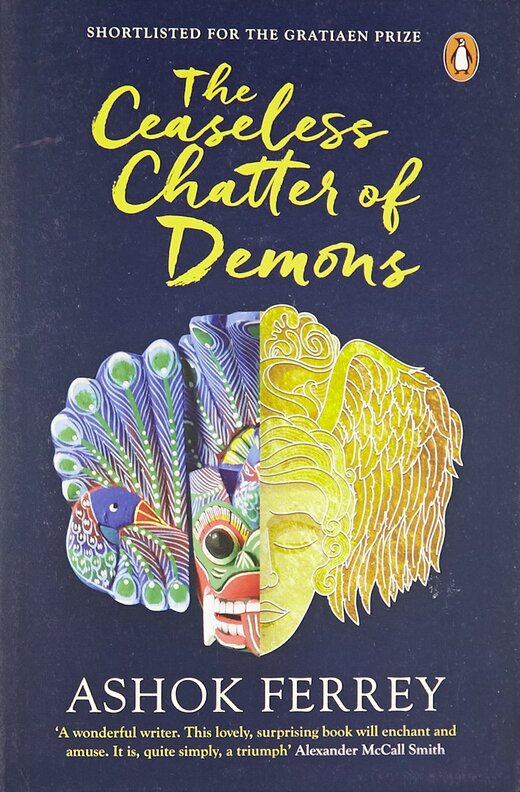
Alex: How would you describe your writing, and are there particular themes that you like to explore?
Ashok: Satirical fiction about life on this Paradise Island (believe me, there’s lots to be satirical about). Recurring themes are: alienation, immigration, and the hugely complex psyche of your average Sri Lankan. (So many foreigners come here fondly imagining that this is some sort of India Lite – boy are they wrong!)
Alex: Are you a writer that plans a detailed synopsis or do you set out with a vague idea and let the story unfold as you write?
Ashok: A bit of both. I am not one of those writers who begins a new book the day after his last is finished. I take quite a few years just thinking about themes and so on, and only begin to write when I almost biologically have to, when I can no longer keep the entire plan in my head. So I know where I’m headed once I start, but don’t precisely know how I’ll get there.
Alex: Tell us about your latest novel.
Ashok: The Unmarriageable Man is about my time as a builder in Brixton in the Thatcher 80s, converting houses. It was an extraordinary time – there was so much money floating around! – young kids in stripey blazers were driving red Porsches. Every girl looked like Princess Diana though not every boy looked like Prince Charles. In the meantime there was little old me, driving a beat-up Ford Escort van, in my dungarees with great holes in them. I believe that at the time I was the only small-time Asian builder in South London. This is the overt theme of the book. But at a deeper level, it is about how each of us deals in our own way with grief: how we are told that all you need is a quick course of counselling and hey presto, it’s gone. The reality, as we all know, is something quite different.
Ashok: Satirical fiction about life on this Paradise Island (believe me, there’s lots to be satirical about). Recurring themes are: alienation, immigration, and the hugely complex psyche of your average Sri Lankan. (So many foreigners come here fondly imagining that this is some sort of India Lite – boy are they wrong!)
Alex: Are you a writer that plans a detailed synopsis or do you set out with a vague idea and let the story unfold as you write?
Ashok: A bit of both. I am not one of those writers who begins a new book the day after his last is finished. I take quite a few years just thinking about themes and so on, and only begin to write when I almost biologically have to, when I can no longer keep the entire plan in my head. So I know where I’m headed once I start, but don’t precisely know how I’ll get there.
Alex: Tell us about your latest novel.
Ashok: The Unmarriageable Man is about my time as a builder in Brixton in the Thatcher 80s, converting houses. It was an extraordinary time – there was so much money floating around! – young kids in stripey blazers were driving red Porsches. Every girl looked like Princess Diana though not every boy looked like Prince Charles. In the meantime there was little old me, driving a beat-up Ford Escort van, in my dungarees with great holes in them. I believe that at the time I was the only small-time Asian builder in South London. This is the overt theme of the book. But at a deeper level, it is about how each of us deals in our own way with grief: how we are told that all you need is a quick course of counselling and hey presto, it’s gone. The reality, as we all know, is something quite different.
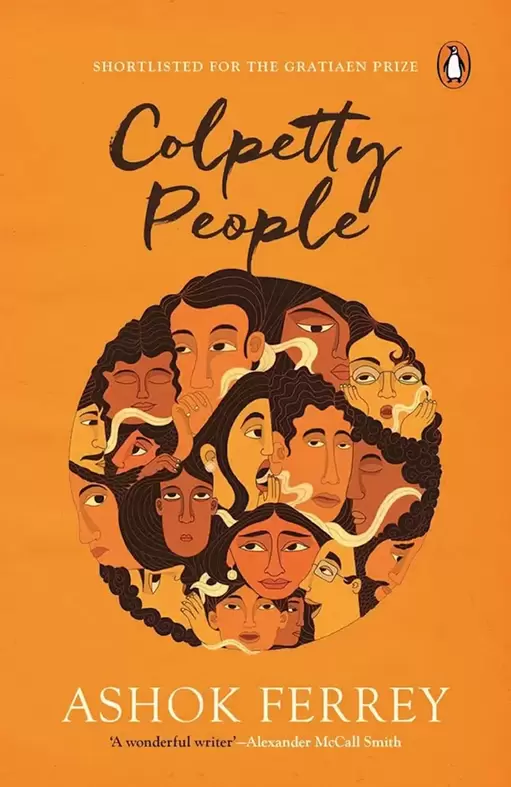
Alex: How much research do you do and what does it usually entail?
Ashok: I am lucky – I started writing late, and my life has been full of fairly dramatic changes of scenario, so there are a lot of stories inside me. You just have to be able to excavate information that is already there and extract the truth from it. Sometimes this truth only becomes plain years later, so it helps to keep it cooking in the mind. That said, I have to think long and hard about what goes in and what’s left out. It may sound strange to say this, but in my writing the truth must hold good as fiction, not the other way around.
Alex: Do you ever base your characters on people you have encountered in real life?
Ashok: Any author who tells you they don’t is a liar! But you have to do the decent thing and mix it up, so that no one person can be easily identified. My first book, Colpetty People had much of Colombo convinced that they were in it. (It was considered almost a badge of honour to be included!) But the reality was that everyone recognized little bits of themselves, no more. At least that’s what I maintain, ha ha!
Alex: Which was the last book you read that blew you away?
Ashok: I have just re-read L’Etranger by Albert Camus. I read it every twenty years or so, and each time it’s a different book. The writing hasn’t changed, but I have; and the truth of it still holds good.
Alex: How do you market your books?
Ashok: I am lucky – I started writing late, and my life has been full of fairly dramatic changes of scenario, so there are a lot of stories inside me. You just have to be able to excavate information that is already there and extract the truth from it. Sometimes this truth only becomes plain years later, so it helps to keep it cooking in the mind. That said, I have to think long and hard about what goes in and what’s left out. It may sound strange to say this, but in my writing the truth must hold good as fiction, not the other way around.
Alex: Do you ever base your characters on people you have encountered in real life?
Ashok: Any author who tells you they don’t is a liar! But you have to do the decent thing and mix it up, so that no one person can be easily identified. My first book, Colpetty People had much of Colombo convinced that they were in it. (It was considered almost a badge of honour to be included!) But the reality was that everyone recognized little bits of themselves, no more. At least that’s what I maintain, ha ha!
Alex: Which was the last book you read that blew you away?
Ashok: I have just re-read L’Etranger by Albert Camus. I read it every twenty years or so, and each time it’s a different book. The writing hasn’t changed, but I have; and the truth of it still holds good.
Alex: How do you market your books?
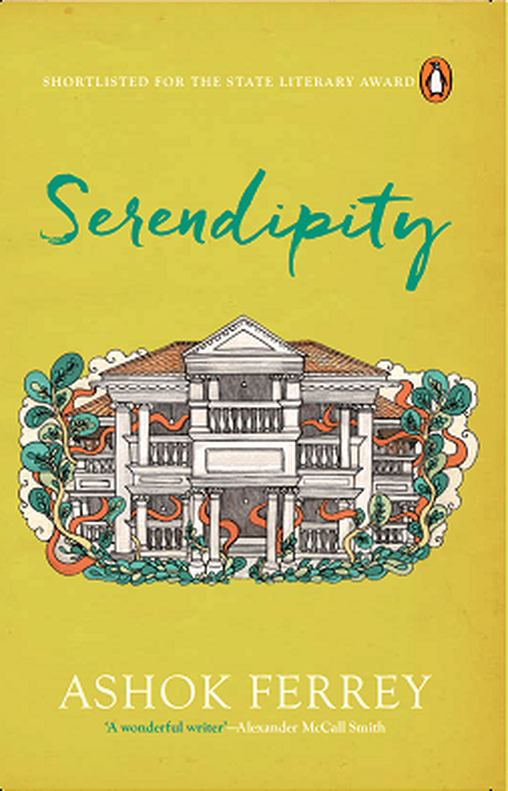
Ashok: With great difficulty, is the short answer – Sri Lanka is so far removed from the mainstream! It is only now that the new book, The Unmarriageable Man, is available at Waterstones and Foyles. Actually, I now have a fantastic team: a great editor and a very dynamic publicist, both watched over with a steely eye by my agent Mita Kapur. She’s tiny and incredibly tough and very scary – ha, ha! – and I love her to bits.
Alex: What are your interests aside from writing? And what do you do to unwind?
Ashok: The gym, when I get time to go. As for unwinding, I guess I’m quite lucky because I can switch disciplines – to get away from writing once I’ve finished a book I start building. I get asked to do a fair bit of compering events too; and my speciality is that walk-on one-line part in various films (no more than one line if the director knows what’s good for them, because I’m the world’s worst actor!) You can see how bad if you watch Funny Boy (on Netflix) where I have the most evil, racist line ever.
Alex: Which authors do you particularly admire and why?
Ashok: Graham Greene, for his particular mix of wit and wisdom. Evelyn Waugh and Freya Stark for the unmatched quality of their prose. RK Narayan for his deceptively simple but sublime story-telling. All mid-century modern authors, you notice. Kind of gives my age away, huh?
Alex: Well, I suppose even the youngsters read Greene and Waugh. But I know what you mean. I get that feeling sometimes, too! Anyway, thank you so much, Ashok for taking part in this interview. I've really enjoyed hearing about your background and your extraordinary writing journey. I am definitely going to read The Unmarriageable Man. And my review will appear on these pages in due course.
Ashok: Thanks Alex. It's been a privilege.
Alex: What are your interests aside from writing? And what do you do to unwind?
Ashok: The gym, when I get time to go. As for unwinding, I guess I’m quite lucky because I can switch disciplines – to get away from writing once I’ve finished a book I start building. I get asked to do a fair bit of compering events too; and my speciality is that walk-on one-line part in various films (no more than one line if the director knows what’s good for them, because I’m the world’s worst actor!) You can see how bad if you watch Funny Boy (on Netflix) where I have the most evil, racist line ever.
Alex: Which authors do you particularly admire and why?
Ashok: Graham Greene, for his particular mix of wit and wisdom. Evelyn Waugh and Freya Stark for the unmatched quality of their prose. RK Narayan for his deceptively simple but sublime story-telling. All mid-century modern authors, you notice. Kind of gives my age away, huh?
Alex: Well, I suppose even the youngsters read Greene and Waugh. But I know what you mean. I get that feeling sometimes, too! Anyway, thank you so much, Ashok for taking part in this interview. I've really enjoyed hearing about your background and your extraordinary writing journey. I am definitely going to read The Unmarriageable Man. And my review will appear on these pages in due course.
Ashok: Thanks Alex. It's been a privilege.
